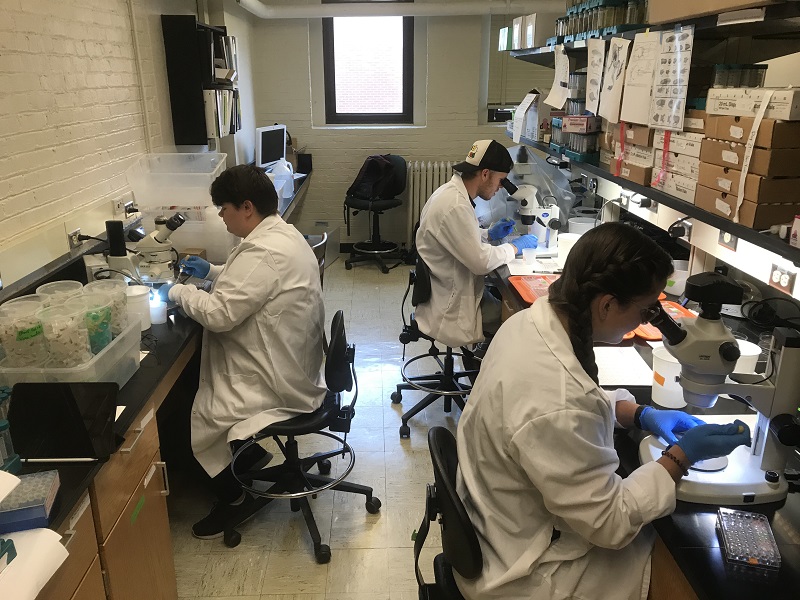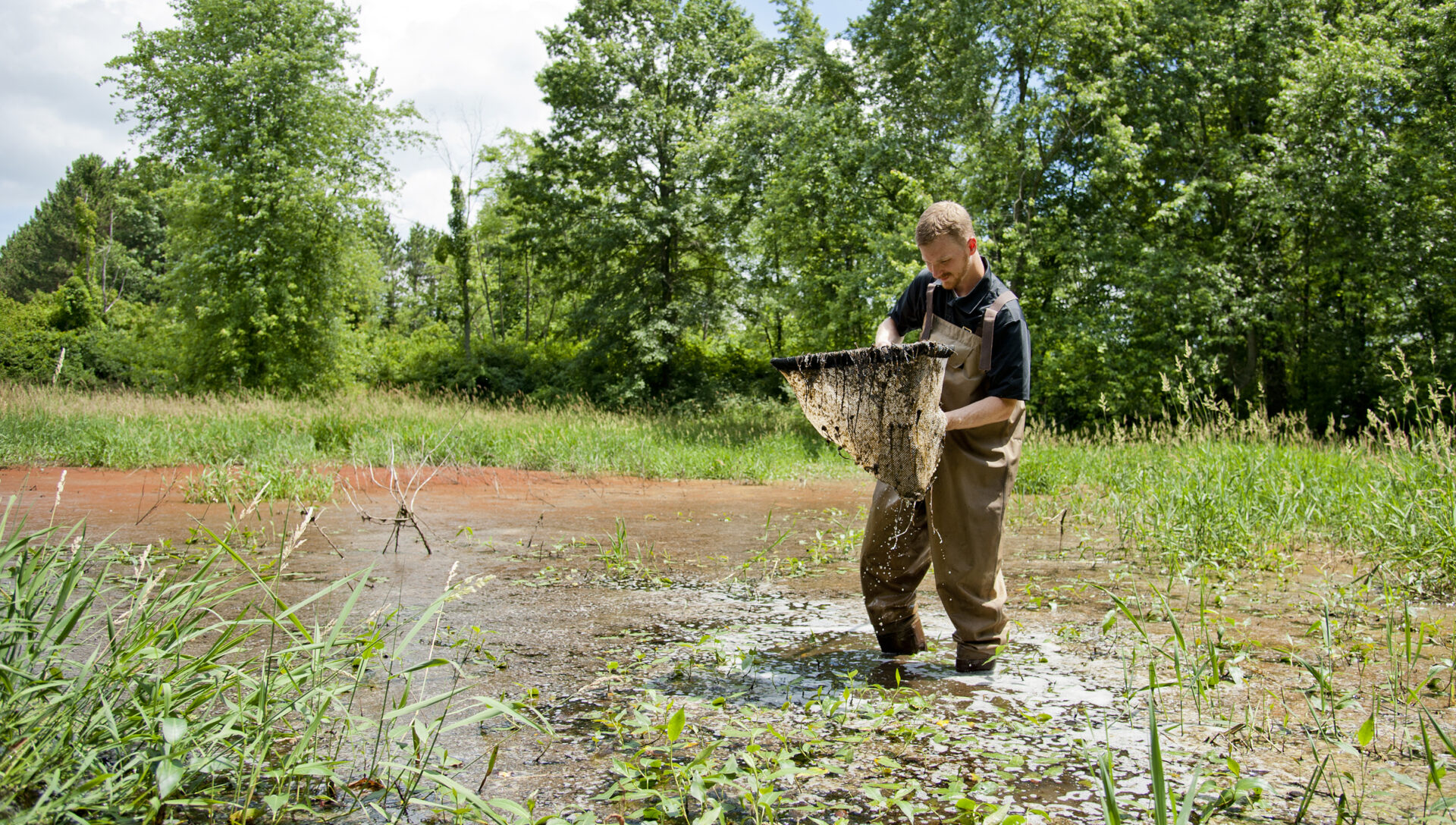Disease ecology
Emerging infectious diseases have sparked concern throughout the scientific community due to the threats posed to global biodiversity and, consequently, their impact on the structure and function of ecological communities. Recognizing that disease dynamics are embedded within complex ecological systems, there have been repeated calls for integrating ecological principles into disease studies. While the traditional focus has been on a single host attacked by a single pathogen, many pathogens are capable of infecting multiple host species and many hosts can be infected with multiple pathogens. Research in the Hoverman Lab seeks to understand: 1) how interactions among parasites influence host pathology and parasite transmission/persistence, 2) the factors that control host susceptibility to micro- and macroparasites, 3) the scales at which parasite interactions are important (within hosts, among hosts, across landscapes), and 4) the implications of parasite interactions for disease control and species conservation.
Current disease related projects in the lab include:
- Exploring the implications of coinfection in amphibian communities with a focus on trematodes, ranaviruses, and the chytrid fungus
- Examining how priority effects influence disease outcomes associated with coinfection
- Assessing whether chemical contaminants increase susceptibility to pathogens
- Exploring drivers of population-level variation in susceptibility to pathogens
- Determining the role of pathogens within ecological communities



